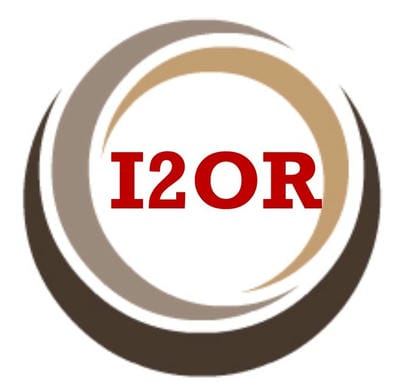Comparative evaluation of the efficacy and safety of Ormeloxifene and combined oral contraceptives in dysfunctional uterine bleeding
Abstract
Introduction: Dysfunctional Uterine Bleeding (DUB) is an abnormal uterine bleeding, in the absence of any organic, systemic or iatrogenic cause. Pharmacological treatment options available are combined oral contraceptive pills, progestogens, danazol, gonadotrophin releasing hormone (GnRH) agonists, SERMs, prostaglandin synthetase inhibitor, anti-fibrinolytics and ethamsylate. The purpose of the study was to evaluate the efficacy and safety of Ormeloxifene and compare it to combined oral contraceptive pills (OCPs) in dysfunctional uterine bleeding.
Method: Hundred women aged 20-50 years presenting with DUB were randomly allocated to two groups of 50 each. Group A were given Ormeloxifene tablet 60 mg twice a week for 12 weeks, followed by 60 mg once a week for 12 weeks. Group B were given OCPs containing 30 microgram Ethinyloestradiol and 150 microgram Levonorgestrel from day 1 to day 21st of the menstrual cycle for 6 cycles. The outcome was studied by assessment of menstrual blood loss by Pictorial Blood loss Assessment Chart (PBAC) score, Hb level in g/dl, endometrial thickness in mm, patient’s level of satisfaction and any drug side effects at the end of 6 months.
Results: The reduction in mean PBAC score with Ormeloxifene (330 to 2.8) was significantly more than with oral contraceptive pills (317 to 74) at 6 months (P<0.001). In both the groups mean hemoglobin level increased but rise in Hb in group A (1.5 g/dl) was more as compared to the rise in Hb in group B (1.2 g/dl). The mean endometrial thickness decreased in both the groups but the decrease in group A (9.6 mm to 8.4 mm) was not statistically significant as compared to the decrease in group B (9.8 mm to 6.4 mm). The side effects were minimal in both the groups. 22% patients with Ormeloxifene and 10% with oral contraceptive pills were highly satisfied with their treatment.
Conclusion: Ormeloxifene is effective in control of DUB and can be used as an alternative to OCP for treatment of DUB with possibly minimal side effects and better dosage compliance.
Downloads
References
2. Hoffman BL, Schorge JO, Schaffer JI, Halvorson M, Bradshaw KD, Gray F (Eds) Abnormal uterine bleeding. In: Schorge JD editor. Williams Gynaecology, 2nd ed. New York: McGraw-Hill;2003. p.219.
3. Konar H. Abnormal menstrual bleeding. D.C Dutta’s Textbook of Gynaecology. 6th edition. New Delhi: Jaypee Brothers Medical Publishers; 2014:180.
4. Frick KD, Clark MA, Steinwachs DM, Langenberg P, Stovall D, Munro MG, et al. STOP-DUB Research Group. Financial and quality-of-life burden of dysfunctional uterine bleeding among women agreeing to obtain surgical treatment. Womens Health Issues. 2009;19(1):70-78. doi:https://doi.org/10.1016/j.whi.2008.07.002.
5. Masand D, Gupta S, Patel J. To Observe Effect of Ormeloxifene in Medical Management of Dysfunctional Uterine Bleeding. J Evol Med Dental Sci.2015;4(4): 587-597. doi: 10.14260/jemds/2015/87
6. Schorge OJ, Schaffer IJ. Abnormal uterine bleeding. Williams Gynecology: Chapter 8;186.
7. Irvine GA, Cameron IT. Medical management of Dysfunctional uterine bleeding.Best pract ResClinObstet Gynaecol.1999;13(2):189-202.
8. Higham JM, O’Brien PMS, Shaw RW. Assessment of menstrual blood loss using a pictorial chart. Br J Obstet Gynaecol. 1990; 97(8):734-739.
9. Biswas SC, Shaha SK, et al. Ormeloxifene a selective estrogen receptor modulator, for the treatment of dysfunctional uterine bleeding. J Obstet Gynaecol Ind. 2004;54(1):56-59.
10. Khare V, Ghosh G, Patil P, Nagar N. Ormeloxifen HCL vs Combined Oral contraceptive Pill in Treatment of DUB. J Evol Med Dent Sci. 2014;3(4):1026-1033. doi:10.14260/jemds/2014/1941.
11. Grover – Panda SN. Ormeloxifene a new treatment modality in dysfunctional uterine bleeding. Guest Lecture in 45th All India Congress of Obstetrics and Gynaecology. 9th Jan.2002.
12. Mandal D, Parmanik S,Surana S et al. Comparative study of low-dose oral contraceptive pill and ormeloxifene in the treatment of dysfunctional uterine bleeding. Int J Health Allied Sci.2014;3(4):225-231. doi: 10.4103/2278-344X.143056.
Copyright (c) 2019 Author (s). Published by Siddharth Health Research and Social Welfare Society

This work is licensed under a Creative Commons Attribution 4.0 International License.



 OAI - Open Archives Initiative
OAI - Open Archives Initiative



















 Therapoid
Therapoid

